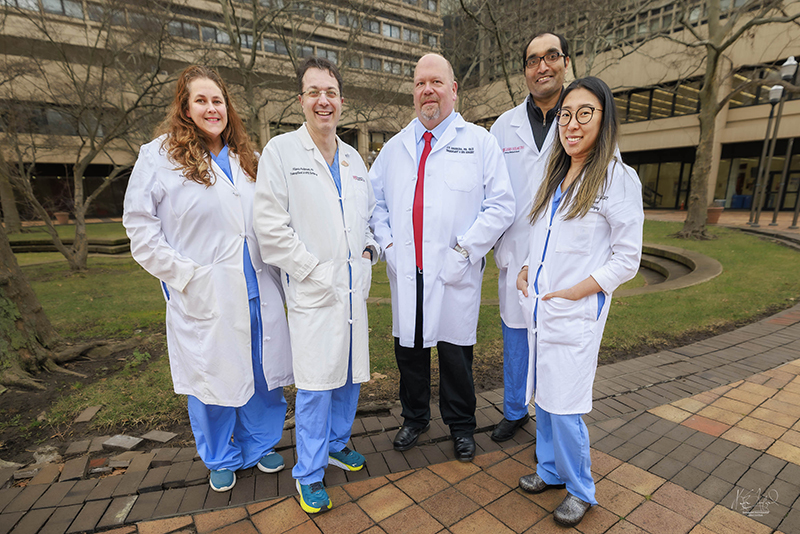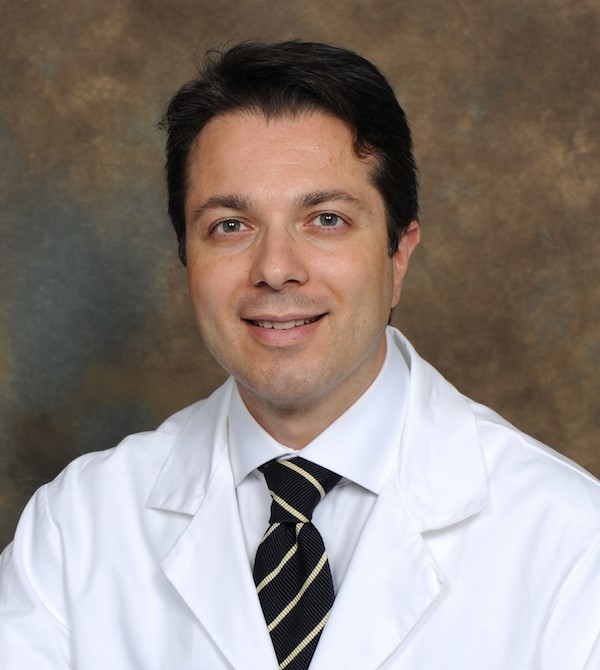Transplant and Hepatobiliary Surgery

Liver Transplant Team
For the third consecutive evaluation period in January 2022, the Scientific Registry of Transplant Recipients (SRTR) has rated the liver transplant program at the University Hospital Center for Advanced Liver Diseases and Transplantation as the regional leader in one-year survival rates.The Center is led by the nationally-recognized physicians at Rutgers New Jersey Medical School. With an estimated one-year survival rate of 98.75%, the Center was rated as the top center from all hospitals in the New York Tri-State area of New Jersey, New York and Connecticut, as well as one of the top centers in the nation.
Liver Transplant Surgery
Liver transplants have been performed at University Hospital since 1988. This program includes evaluation and treatment of potential transplant candidates to the treatment of complex hepatobiliary disorders. Faculty and residents are actively involved in the various phases of transplantation, including organ procurement, surgical transplantation and postoperative care. In addition the faculty perform a variety of hepatobiliary surgical procedures for complex hepatobiliary surgical disorders.
For more information about the Liver Transplant Program at University Hospital,
click: "Liver Transplant"
For more information about General Organ Donation please see the UNOS website.
Hepatobiliary Surgery
The hepatobiliary system refers to the liver, pancreas, gall bladder and bile ducts – organs that are involved with the production, storage, transport and release of bile, a secretion that prepares fats for further digestion.
There are numerous conditions that can harm the hepatobiliary system, some of which are life-threatening and ultimately, require surgery and/or liver transplantation. Liver damage can occur from a variety of sources: infections with viruses (hepatitis A, B, and C viruses), exposure to toxic drugs or chemicals, excessive use of alcohol, genetic disorders, diabetes, heart failure, cancer and shock. Some of the signs and symptoms of liver disease include:
- Jaundice (yellowing of the skin and eyes)
- Pruritus (itching)
- Dark, tea-colored urine
- Weight loss
- Muscle wasting
- Ascites (swelling of the abdomen with fluid)
- Fatigue
- Easy bruising and bleeding (bleeding gums or frequent nosebleeds)
- Vomiting blood
- Blood in the stool (bright red blood or black, tar-like stool)
- Mental confusion
In many cases, the liver is able to repair itself; in others, a variety of treatments may be effective. However, if liver damage is severe, the organ may not recover, resulting in liver failure which is life threatening. Once this happens, the patient may need a new liver.
April is “National Donate Life Month” across the United States and we celebrate the gift of organ donation that saves thousands of lives each year. Learn what our Liver Transplant and Hepatobiliary surgeons do in caring for donors, recipients and their families.
Meet Our Faculty

Associate Professor and Interim Division Chief

Associate Professor

